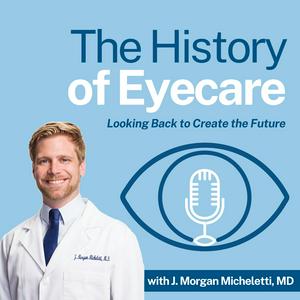Richard Lindstrom, MD: Diffractive Optics, Ocular Surgery News, Corneal Preservation, and the Shift in Glaucoma Management
Dr. Richard Lindstrom shares his journey in ophthalmology, from initially intending to join his family's construction business to becoming a renowned ophthalmologist and innovator. He discusses how medicine chose him and his path to specializing in ophthalmology. Dr. Lindstrom shares his experience in private practice and academia, as well as his involvement in research, teaching, and industry collaboration. He also highlights the importance of being open to innovation and the challenges faced by pioneers in the field. Additionally, he discusses his patents and his role as president of various ophthalmology organizations. Dr. Richard L. Lindstrom discusses the path to becoming a Key Opinion Leader (KOL) in the field of ophthalmology. He emphasizes the importance of being involved in clinical trials, conducting research, and teaching colleagues. Dr. Lindstrom also shares his experience as the Chief Medical Editor of Ocular Surgery News and highlights the importance of education and innovation in the field. He discusses his most impactful publications and the advancements in various areas of ophthalmology, including cataract surgery, glaucoma treatment, corneal refractive surgery, and retinal diseases. Dr. Lindstrom encourages young ophthalmologists to embrace innovation and continue learning throughout their careers.
Chapters
00:00 Dr. Richard Lindstrom's Journey in Ophthalmology
05:19 Balancing Private Practice, Academia, and Research
16:20 The Importance of Being Open to Innovation
28:53 Innovations in Ophthalmology: Accommodating IOLs
33:00 The Changing Landscape of Ophthalmology Education
35:00 Becoming a Key Opinion Leader
42:07 The Role of Education and Innovation
42:37 Dr. Lindstrom's Work with Ocular Surgery News
48:39 The Development of Diffractive Multifocal IOLs
53:16 The Most Influential Advances in Ophthalmology
59:00 The Shift in Glaucoma Treatment
01:03:22 Advice for Young Ophthalmologists
Keywords
ophthalmology, journey, medicine, private practice, academia, research, teaching, industry collaboration, innovation, patents, president, ophthalmology organizations, ophthalmology, Key Opinion Leader, clinical trials, research, education, innovation, cataract surgery, glaucoma treatment, corneal refractive surgery, retinal diseases


